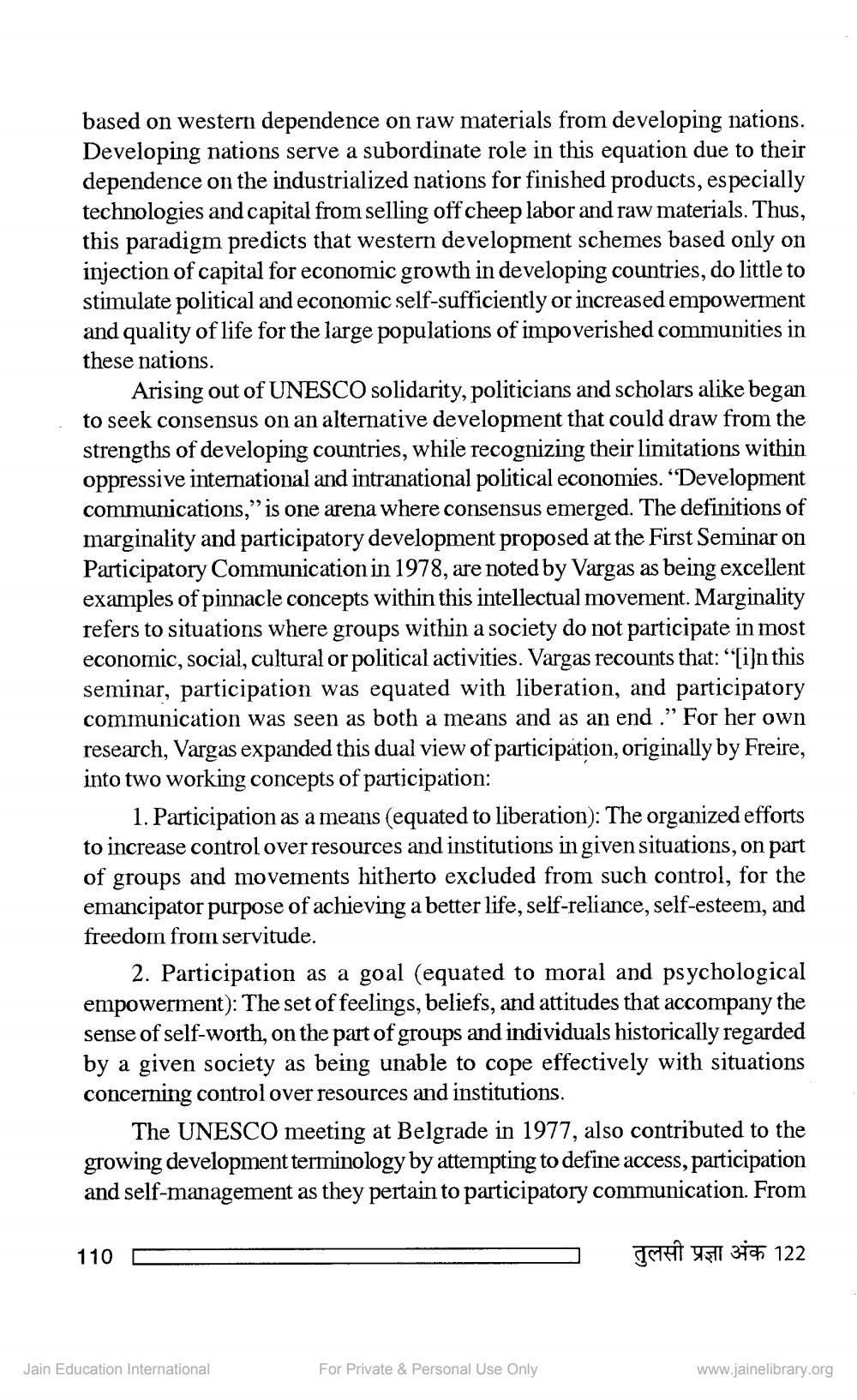________________ based on western dependence on raw materials from developing nations. Developing nations serve a subordinate role in this equation due to their dependence on the industrialized nations for finished products, especially technologies and capital from selling off cheep labor and raw materials. Thus, this paradigm predicts that western development schemes based only on injection of capital for economic growth in developing countries, do little to stimulate political and economic self-sufficiently or increased empowerment and quality of life for the large populations of impoverished communities in these nations. Arising out of UNESCO solidarity, politicians and scholars alike began to seek consensus on an alternative development that could draw from the strengths of developing countries, while recognizing their limitations within oppressive international and intranational political economies. "Development communications," is one arena where consensus emerged. The definitions of marginality and participatory development proposed at the First Seminar on Participatory Communication in 1978, are noted by Vargas as being excellent examples of pinnacle concepts within this intellectual movement. Marginality refers to situations where groups within a society do not participate in most economic, social, cultural or political activities. Vargas recounts that: "[i]n this seminar, participation was equated with liberation, and participatory communication was seen as both a means and as an end." For her own research, Vargas expanded this dual view of participation, originally by Freire, into two working concepts of participation: 1. Participation as a means (equated to liberation): The organized efforts to increase control over resources and institutions in given situations, on part of groups and movements hitherto excluded from such con emancipator purpose of achieving a better life, self-reliance, self-esteem, and freedom from servitude. 2. Participation as a goal (equated to moral and psychological empowerment): The set of feelings, beliefs, and attitudes that accompany the sense of self-worth, on the part of groups and individuals historically regarded by a given society as being unable to cope effectively with situations concerning control over resources and institutions. The UNESCO meeting at Belgrade in 1977, also contributed to the growing development terminology by attempting to define access, participation and self-management as they pertain to participatory communication. From 110 C TAH YF 315 122 Jain Education International For Private & Personal Use Only www.jainelibrary.org




